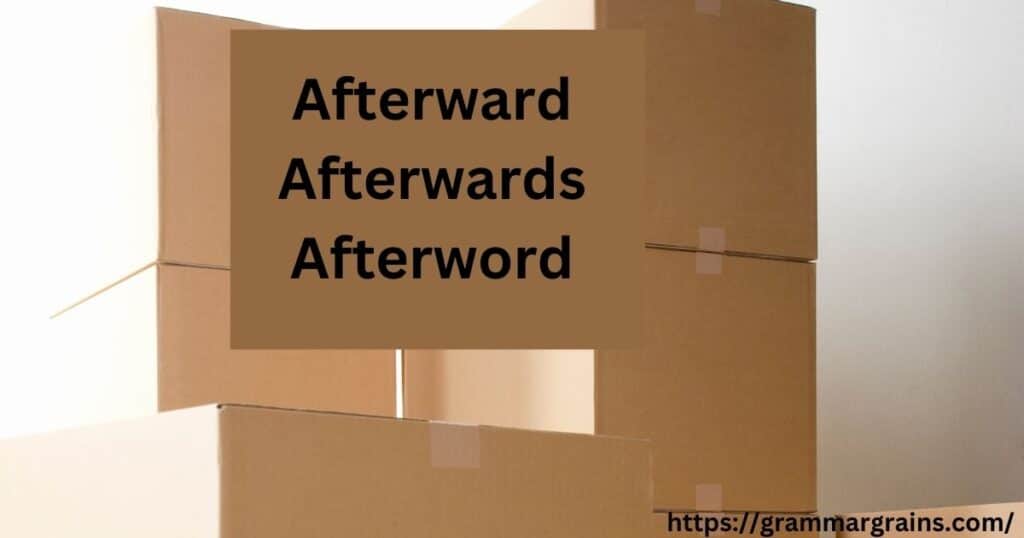Choosing the right word between afterward, afterwards, and afterword can elevate your writing. These terms sound similar but serve different purposes. Writers often confuse them due to their shared roots and overlapping spellings.
However, understanding the differences helps you communicate effectively. Whether you’re crafting a formal essay or a casual note, knowing when to use each word ensures clarity.
Why Is There Confusion?
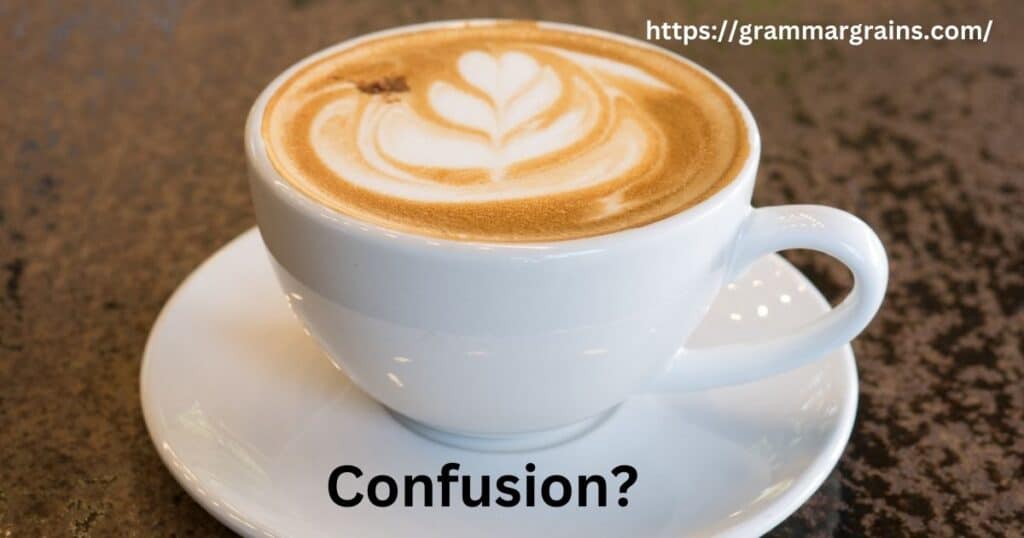
Afterward and afterwards are adverbs of time, indicating something that happens later.
Meanwhile, afterword belongs to the literary world.
It refers to a reflective section at the end of a book.
Knowing these distinctions can make your writing stand out, especially when targeting a specific audience like readers of American English or British English.
The confusion between these terms arises from their similarities in spelling and pronunciation.
Both afterward and afterwards function as adverbs. They share the same meaning— “later” or “at a later time.” However, afterword is entirely different. It’s not an adverb but a noun, referring to a concluding note or commentary in books.
This difference in function is often overlooked.
Regional preferences also contribute to the confusion.
Writers using American English prefer afterward, while those using British English favor afterwards.
The inclusion of the “s” in afterwards aligns with other British adverbs like “towards” or “whilst.”
Despite this subtle distinction, both words are interchangeable in meaning.
In contrast, afterword has no connection to time.
It appears only in the context of literature, often as part of an author’s commentary.
Adding to the mix is the challenge of context. For example, someone might write, “We will meet afterward to discuss further.” A different writer might say, “He read the afterword to understand the author’s perspective.” These usages show how the same prefixes can lead to entirely different meanings.
Writers often confuse these terms because they focus on the prefixes, ignoring the rest of the word.
What Do ‘Afterward’ and ‘Afterwards’ Mean?
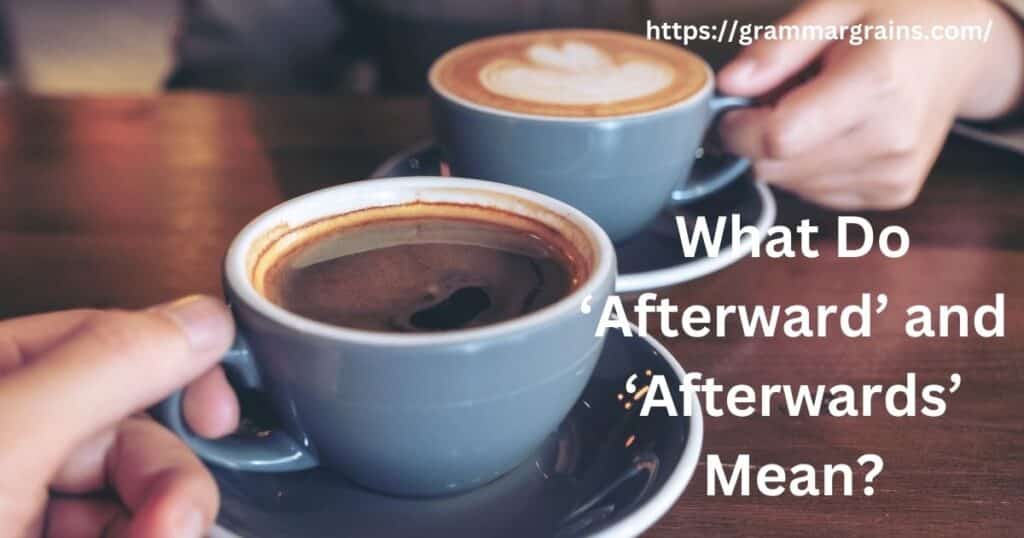
Exploring “Afterward”
Afterward is a widely used adverb in American English.
It indicates an action or event happening at a later time.
For example,
“The meeting ended, and the team discussed the results afterward.”
Here, afterward serves to connect two actions sequentially.
This word is common in both formal and informal writing.
In professional contexts, afterward is ideal for concise, clear communication.
For instance,
“The board approved the proposal, and the implementation began afterward.”
In casual settings, it’s just as effective:
“Let’s grab lunch afterward.”
This versatility makes afterward a staple in everyday usage across the United States.
Exploring “Afterwards”
Afterwards carries the same meaning as afterward but is the preferred choice in British English.
Its additional “s” aligns with British stylistic conventions.
For example,
“She explained the rules and left afterwards.”
This subtle difference reflects broader trends in regional adverb usage.
Writers often choose afterwards to create a more formal tone in British texts.
However, it also appears in casual writing.
For instance,
“We went to the park and enjoyed a cup of tea afterwards.”
Understanding these regional preferences is crucial when addressing a global audience.
What Does “Afterword” Mean?
The term afterword belongs to the realm of literature.
It refers to a reflective or explanatory section at the end of a book.
Authors use afterwords to share insights, discuss their writing process, or explore additional themes.
For example, a historical novel might include an afterword explaining the real events that inspired the story.
Unlike afterward and afterwards, afterword does not describe time. Instead, it offers context or commentary. Many authors, including Richard Nordquist, have used afterwords to provide deeper connections with their readers. For instance, an author might use the afterword to explain why they chose a particular setting or character arc.
Readers often find afterwords insightful.
They create a bridge between the story and the real world.
A well-crafted afterword can enhance the reader’s appreciation of the text.
For instance, in classic literature, afterwords often discuss the historical and cultural context of the work, offering readers a richer understanding of the narrative.
Origins and Etymology
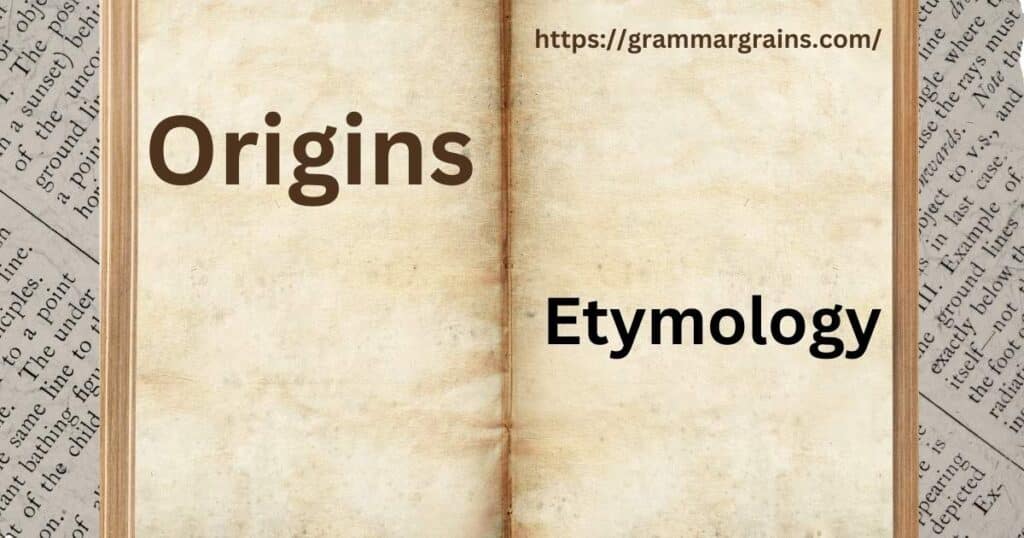
Where Did “Afterward” Originate?
The word afterward has deep roots in Old English.
It comes from “æfterweard,” which means “toward what comes after.”
Over time, its usage evolved into modern English, adapting to changes in spelling and pronunciation.
American English adopted the simpler form, dropping the “s” commonly seen in British adverbs.
This reflects the broader tendency of American grammar to favor brevity and straightforwardness.
In the United States, afterward gained popularity as the preferred term for describing sequential actions.
Its streamlined form makes it ideal for formal documents and casual conversations alike.
For example,
“He completed his speech, and the audience discussed it afterward.”
This word has become a staple in American writing, balancing clarity and efficiency.
How Did “Afterwards” Develop?
Afterwards also traces its origin to Old English but retained its “s” in British English.
This small difference aligns with the British preference for more elaborate adverb forms, as seen in words like
“towards” and “amongst.”
In contrast to the American approach,
British English often maintains traditional linguistic structures,
which is why afterwards remains the standard in regions like the UK,
Canadian English, and Australian English.
Although it shares the same meaning as afterward, the addition of “s” subtly affects its tone.
Afterwards often conveys a sense of continuity in narrative or conversation.
For instance,
“We enjoyed tea at the café, and afterwards, we strolled through the gardens.”
This usage feels natural in British contexts, reinforcing the word’s connection to regional linguistic traditions.
The Literary Origin of “Afterword”
The term afterword emerged in the early 20th century, gaining prominence around 1910.
It combines “after” and “word,” emphasizing its role as a concluding note.
Unlike afterward or afterwards, this word is specific to the literary domain.
Authors use it to offer readers a personal reflection or detailed explanation of their work.
For example, in many novels, the afterword serves as a space for the author to address themes, historical accuracy, or inspiration.
It often feels like a conversation between the writer and the reader, providing a deeper connection to the text.
The afterword transforms a book into more than just a story, offering readers additional insights and a sense of closure.
Key Differences
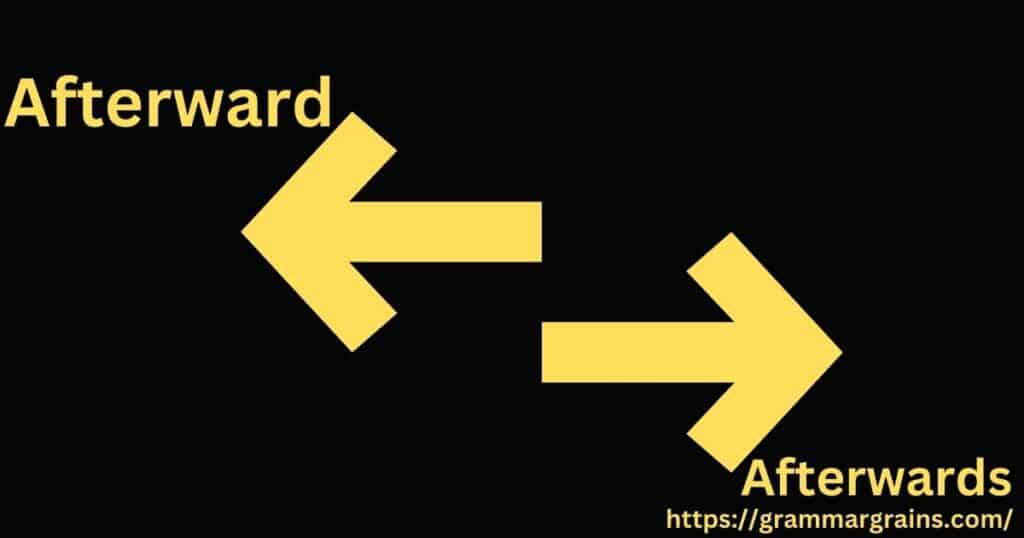
Afterward vs. Afterwards
The main difference between afterward and afterwards lies in regional usage.
American English favors afterward, while British English prefers afterwards. Both words serve the same purpose as adverbs describing events that occur later. However, choosing the right term depends on your audience and the context of your writing.For example, an American writer might say, “We’ll discuss the results afterward.”
In contrast, a British writer would likely phrase it as,
“We’ll discuss the results afterwards.”
Though interchangeable in meaning, these variations highlight the influence of regional linguistic norms.
Understanding these preferences ensures that your writing feels natural and appropriate for your audience.
Comparing Afterword to Afterward and Afterwards
Afterword differs fundamentally from its counterparts.
While afterward and afterwards are temporal adverbs, afterword is a noun.
It refers exclusively to a section at the end of a book.
Confusing these terms can lead to misunderstandings, especially in formal writing.
For example,
“The book included an insightful afterword about the author’s journey.”
This sentence uses afterword correctly, focusing on its literary context.
Mixing it with afterward or afterwards would distort the meaning, as neither adverb is suited for this purpose.
Key Differences
| Feature | Afterward (US) | Afterwards (UK) | Afterword (Noun) |
|---|---|---|---|
| Part of Speech | Adverb | Adverb | Noun |
| Usage | Temporal | Temporal | Literary |
| Regional Preference | American English | British English | Universal |
Usage Guide
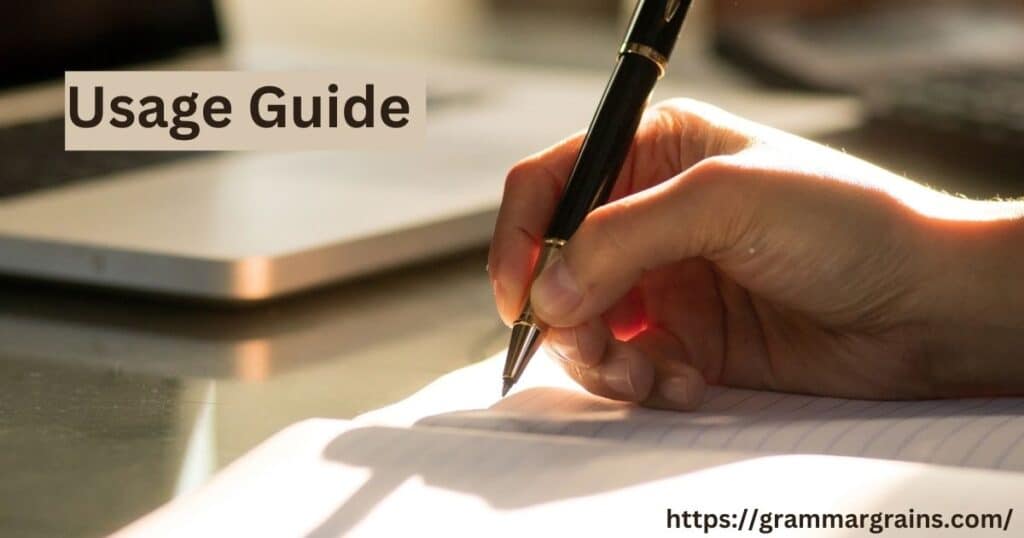
Practical Examples for Afterward and Afterwards
Using afterward in American English is straightforward.
For instance:
- “We finished the meeting and reviewed the minutes afterward.”
- “He explained the task, and I completed it afterward.”
In British English, afterwards fits naturally into sentences:
- “They enjoyed dinner and went to the park afterwards.”
- “She shared her thoughts and left afterwards.”
How to Use Afterword Effectively
Reserve afterword for literary or reflective purposes. For example:
- “In the afterword, the author discussed the historical context of the novel.”
- “The book’s afterword provided a touching explanation of the author’s motivations.”
Conclusion
By mastering the difference between afterward and afterword, as well as understanding regional preferences for afterward and afterwards, you can enhance the clarity of your writing. Whether you’re targeting an audience in the U.S., the UK, or beyond, these insights help you choose the right word for the right context.
Clear communication is about making thoughtful choices, and knowing these distinctions ensures your message resonates with precision and impact.
FAQs
Q: What is the difference between ‘Afterward’ and ‘Afterwards’?
A: Both mean “later,” but ‘Afterward’ is preferred in American English, while ‘Afterwards’ is used in British English.
Q: What does ‘Afterword’ mean?
A: ‘Afterword’ is a noun referring to a reflective or explanatory section at the end of a book.
Q: Can ‘Afterward’ and ‘Afterword’ be used interchangeably?
A: No, ‘Afterward’ refers to time, while ‘Afterword’ is specific to literature.
Q: How can I remember the difference between ‘Afterward’ and ‘Afterword’?
A: Think of ‘Afterward’ as time-related and ‘Afterword’ as the final “word” in a book.

Taila Lucy, an expert content writer at Grammar Grains, brings 4 years of experience crafting engaging pieces on grammar. Her work delves into synonyms, antonyms, slang, puns, and poetry, helping readers master English with creativity and flair.
